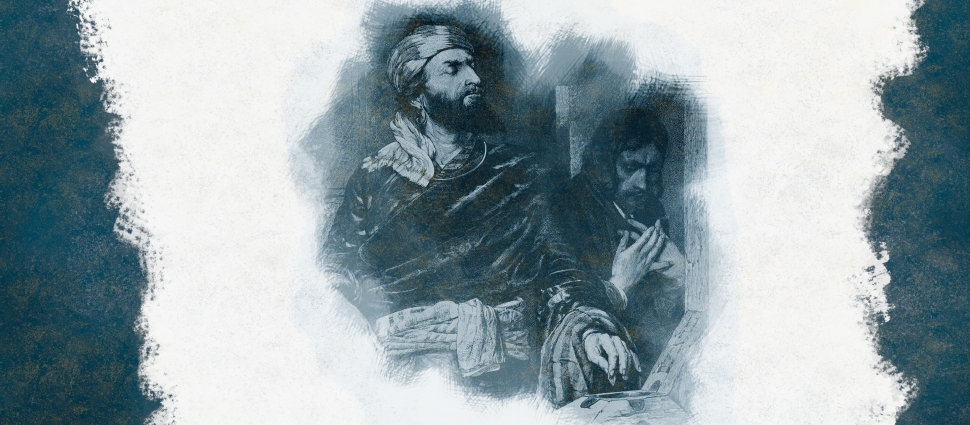The Darkest Deception in the Church

“You shall not bear false witness against your neighbor”
“The church is full of hypocrites.” That’s often the conclusion of those who have been there, seen it, tasted the potluck and the politics, and decided that, on the whole, a Sunday morning bike ride is the better option. To be fair, you’re less likely to be brow beaten and guilted on your bike ride (depending on where you ride). On the other hand, you’re also far less likely to hear from God in a meaningful and challenging way.
What do these people mean by charging us with hypocrisy? After all, isn’t everyone a hypocrite at some point? We all have standards, and we all are prone to extend a little more grace to ourselves than to others when those standards are not met. But I don’t think that’s the chief annoyance for those happily buzzing by your church on their bikes. These ex-churchers may not be able to fully articulate the source of the hypocrisy, but they know it when they feel it.
The worst deception the church perpetrates is that we are hypocrites about being hypocrites. We hear the pastor mention the Pharisees during the Sunday sermon, and we smugly draw a bit of a caricature in our minds. The Pharisees are those other Christians we’ve known who “just don’t get it.” They’re the legalistic, archaic, unfriendly ones. The Pharisees are always “they”; they are never us. Of course, the real irony about a modern Pharisee is that he never believes he’s a Pharisee.
The worst deception in the church is self-deception on this point: that we believe we’re not self-righteous. This is so colossally difficult to see, because any well-versed Christian can articulate the solas of the Reformation. We are saved by faith alone, through grace alone, in Christ alone. Terrific. Now that I can say that, there’s no danger in me being a hypocrite anymore, because I know I’m saved by grace, not by works. We can recite the stories of Zacchaeus and the penitent tax collector by heart, eager to share with people how much grace is available to them. Those stories may even apply to a past version of ourselves, before we came to Jesus or before we became Reformed. But we forget our present need for grace, at best paying lip service to it through a publicly recited confession of sins, and then we wonder why our churches are not bringing in drug-abusers, unwed fornicating couples, and swindling ladder-climbers.
In many Reformed churches (and I would venture to say most churches in general), the hypocrisy that offends people is not so much that you sing like a saint on Sunday and then swear like a sailor on Monday. The hypocrisy that others find repulsive is when the church proclaims to be a grace-filled place, but in reality only has grace for people who look and talk like them. We deceive ourselves right at the very place where the gospel matters most: None are righteous, but we are saved through grace alone as a gift (Rom 3; Eph 2), and therefore we live a life of ongoing repentance.
The real power of the gospel is that it welcomes and accepts the self-righteous. But it also requires that they admit their self-righteousness and ask God for forgiveness and grace to change. It is one thing to proclaim a gospel of grace, and quite another to live it out. Visitors will quickly sense whether your church is a place where members are still eager to grow, change, and be confronted, or whether that’s only something they’re eager to do for other people. This is the sort of hypocrisy that is unendurable.
We need to rend our hearts, not simply our garments. We may rightly express our many failings and dependency on God’s grace during Sunday worship, but what happens after the service? Are we presenting ourselves as “all-together,” without a single chink in the armor? Too often we are eager to put on a nice clean suit or dress and say, “I’ve got it all figured out now, thank you very much.” But the gospel is not for those who have it all figured out; it’s for those who know they need redemption from their sins, including the sins of self-righteousness. One of the truly powerful things about Jesus’ ministry is that he comes not only for prostitutes and tax collectors, but for Pharisees as well. He loves the self-righteous because he knows that self-righteousness is the universal human barrier against the gospel.
If you’re a Christian reading this and saying “Yes! They are being hypocritical,” stop. Maybe you are one of those people who love to spend time with the down-and-outers; maybe you despise stuffy Sunday morning studies with coffee, donuts, and debates over Nahum; and maybe (probably) you’re self-righteous too, because you really understand grace, unlike those lame Christians who just study the Bible.
Do you see how difficult it can be to spot the self-deception?
In the church, we can begin to undo this false witness to Christ and his gospel by collectively letting down our guard. We can all acknowledge, frankly, our hearts are not where they should be. This is one of the first and most refreshingly honest places we can repent. We need to grow in seeing our need to grow.
Read previous articles in this series here.
Justin Poythress (MDiv, WTS) is Pastor of All Saints Presbyterian Church in Boise, ID. He blogs regularly at Time & Chance.
Related Links
"You're All Hypocrites!" by William Boekestein
"Hypocrisy, Self-Doubt, and the Supper" by Matt Foreman
"Edwards on the Recovery of True Christian Virtue" by Jacob Tanner
Knowing Sin by Mark Jones
Surviving Religion 101 by Michael Kruger




